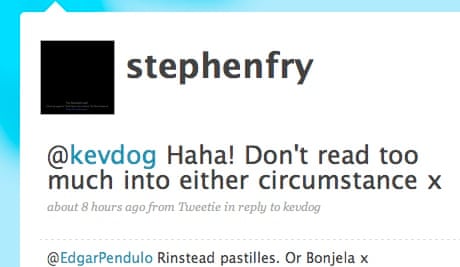Just when everybody decided to start using the microblogging service Twitter, things have taken a distinctly dark turn. All across the site, people's icons have started disappearing – their colourful avatars replaced, instead, with simple black squares almost everywhere.
And it's not just on Twitter: similar blackouts are taking place across Facebook, MySpace, Bebo and elsewhere too.
It turns out that this isn't the result of a malicious hacker or even a random technical fault. Nor have these icons and photos been whisked away by aliens in some sort of avatar-snatching heist. Instead the so-called "internet blackout" is part of a political protest against a law that has outraged internet campaigners in New Zealand.
The law in question is Section 92a, an amendment to the country's copyright law that is due to come into force at the end of February.
It [] tells internet service providers that they "must adopt and reasonably implement a policy that provides for termination" of accounts used by anyone deemed a "repeat infringer" – regardless of whether the person has been convicted of a crime or not.
Proponents say Section 92a is necessary to keep a lid on the problem of illegal downloading and copyright infringement online. Critics point out that it goes even further than the "three strikes" laws that have recently been under consideration in France and Britain – and that it eschews the burden of proof in favour of presuming guilt by association.
Plus, they say, somebody could end up shutting down the internet connection at a library, school or hospital by downloading illegally over their network. "Under the new law, anyone who provides any form of services over the Internet is an ISP," said Geekzone NZ. "That means libraries, councils, schools, businesses, government offices, you name it. If you share your Internet connection with your flatmates, you're probably an ISP too under the new act."
As part of the protest, New Zealand's Creative Freedom Foundation is asking internet users to replace their photos and icons with blank spaces to give people an idea of what the internet could look like under the new regime.
Bronwyn Holloway-Smith, director of the CFF, says thousands of New Zealand musicians and artists have signed a petition against the law, and that the public needs to voice its frustration.
"While copyright infringement is a problem for artists, our petition shows that thousands of artists think that it is a greater problem for people not to get a trial," she said. "Treating fans as guilty until
proven innocent isn't what artists want done in their name, and many see that as being damaging to creative industries."
Another pertinent question might be to wonder whether the internet blackout will have any effect. After all, online action has a spotty record of success at best – just witness the vast numbers of toothless Facebook protest groups or Downing Street's Petitions website for evidence.
But the CFF is using the blackout as one part of a wider campaign including petitions, parliamentary protests and writing to the government to complain.
Even though the blackout might not make a difference to ministers in Wellington, plenty of people are still joining in. Arch-Twitterer Stephen Fry, who gave the campaign a huge boost when he posted about it earlier this week, suggested that taking part could be the only real way for some people to show support.
"It may not bring the NZ gov to their senses," he posted. "But can it hurt for them to learn of our outrage?"
